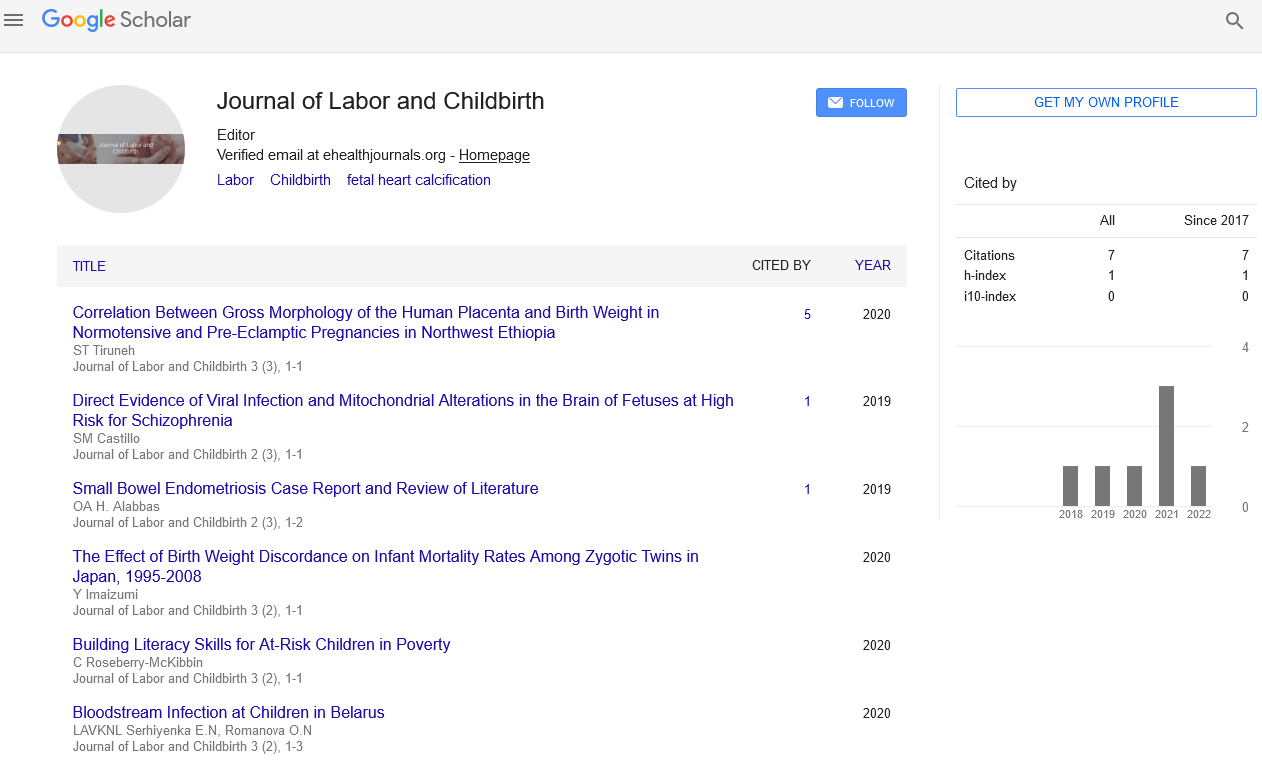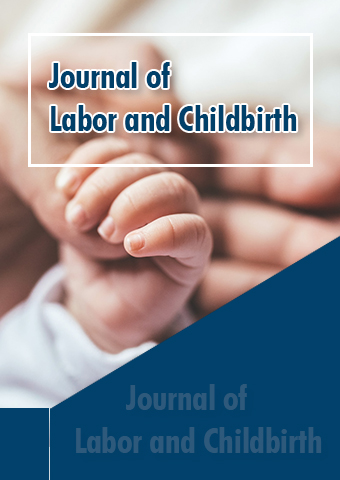Perspective - Journal of Labor and Childbirth (2024) Volume 7, Issue 4
The Importance of Doula Support: Enhancing Birth Experiences
- Corresponding Author:
- Elsa Viora
Department of Gynecology,
Haouth University,
Hillah,
Iraq
E-mail: viora.elsa@gmail.com
Received: 02-Jul-2024, Manuscript No. jlcb-24-140556; Editor assigned: 05-Jul-2024, PreQC No. jlcb-24-140556 (PQ); Reviewed: 19-Jul-2024, QC No. jlcb-24-140556; Revised: 26-Jul-2024, Manuscript No. jlcb-24-140556 (R); Published: 23-Aug-2024, DOI: 10.37532/ jlcb.2024.7(4).248-249
Introduction
In recent years, the role of Doulas has gained significant attention in the realm of maternal health. Doulas, trained professionals who provide continuous physical, emotional and informational support to a mother before, during and shortly after childbirth, have become an integral part of the birthing process for many families. Their presence is associated with numerous benefits, ranging from reduced intervention rates to improved maternal satisfaction. This article delves into the multifaceted role of Doulas, highlighting their importance and the positive impact they have on birth experiences.
Description
The role of a Doula
Doulas are not medical professionals; instead, their focus is on providing non-medical support. This support can be broken down into three primary areas:
Emotional support: Doulas offer constant reassurance, encouragement and a calming presence. Their continuous support helps reduce anxiety and fear, promoting a more positive birthing experience.
Physical support: This includes assisting with comfort measures such as massage, positioning and breathing techniques. Doulas help manage pain and discomfort naturally, often reducing the need for medical pain relief.
Informational support: Doulas provide evidence-based information to help parents make informed decisions about their care. They clarify medical terminology, explain procedures and advocate for the mother’s wishes.
Benefits of Doula support
Research consistently shows that the presence of a Doula has a positive impact on the birthing process. Some key benefits include:
Reduced interventions: Studies have shown that continuous support from a Doula is associated with a decrease in the use of epidurals, reduced need for labor-inducing drugs, fewer assisted deliveries and a lower incidence of cesarean sections.
Shorter labor: Women supported by Doulas often experience shorter labors. The emotional and physical support provided can help labor progress more smoothly and efficiently.
Enhanced maternal satisfaction: The personalized support and continuous presence of a Doula contribute to higher levels of maternal satisfaction. Mothers feel more in control, supported and empowered, which can lead to a more positive birth experience.
Better birth outcomes: There is evidence suggesting that Doula support is linked to better outcomes for both mothers and babies, including higher Apgar scores for newborns and lower rates of postpartum depression.
The Doula-midwife collaboration
While Doulas and midwives have distinct roles, their collaboration can significantly enhance the birthing experience. Midwives provide medical care, focusing on the health and safety of mother and baby, while Doulas offer continuous emotional and physical support. This complementary relationship ensures that the mother receives comprehensive care, addressing both her medical and emotional needs.
Doulas in different birth settings
Doulas are versatile and can support births in various settings, including hospitals, birthing centers and home births. Each setting presents unique challenges and opportunities:
Hospital births: In a hospital setting, Doulas help create a more personalized and less clinical environment. They can advocate for the mother’s birth plan and facilitate communication between the medical team and the family.
Birthing centers: Doulas working in birthing centers often collaborate closely with midwives. The emphasis on natural childbirth aligns well with the support Doulas provide.
Home births: For home births, Doulas play a crucial role in creating a comfortable and supportive environment. They assist with preparations and provide continuous support throughout labor and delivery.
Postpartum support
The role of a Doula extends beyond childbirth. Postpartum Doulas provide support in the critical weeks following birth. This support includes:
Emotional support: Helping new mothers navigate the emotional challenges of the postpartum period, including baby blues and postpartum depression.
Practical assistance: Assisting with newborn care, breastfeeding support and household tasks to allow the mother to rest and recover.
Information and resources: Providing information on newborn care, connecting families with community resources and offering guidance on infant development and parenting.
Training and certification
Becoming a Doula involves comprehensive training to ensure they can provide effective support. Training programs cover various aspects of childbirth, including physiology, comfort measures, communication skills and postpartum care. Certification organizations, such as DONA International and the International Childbirth Education Association (ICEA), provide standards and guidelines for doula practice, ensuring a high level of professionalism.
The future of Doula support
The role of Doulas is evolving, with increasing recognition of their value in maternal health. Efforts are underway to integrate Doulas more fully into the healthcare system, ensuring that all families have access to their support. This includes:
Insurance coverage: Advocacy for broader insurance coverage of Doula services to make them accessible to more families.
Hospital programs: Developing hospital-based Doula programs to provide support to patients who may not have otherwise considered or afforded Doula care.
Research and advocacy: Continued research on the benefits of Doula support and advocacy for policies that support the inclusion of Doulas in maternal healthcare.
Conclusion
Doulas play a crucial role in enhancing the birth experience for mothers and families. Their continuous emotional, physical and informational support leads to better birth outcomes, reduced interventions and higher maternal satisfaction. As awareness of the benefits of Doula support grows, it is essential to continue advocating for their inclusion in maternal health care to ensure that all families have access to the comprehensive support they need during this transformative time.

